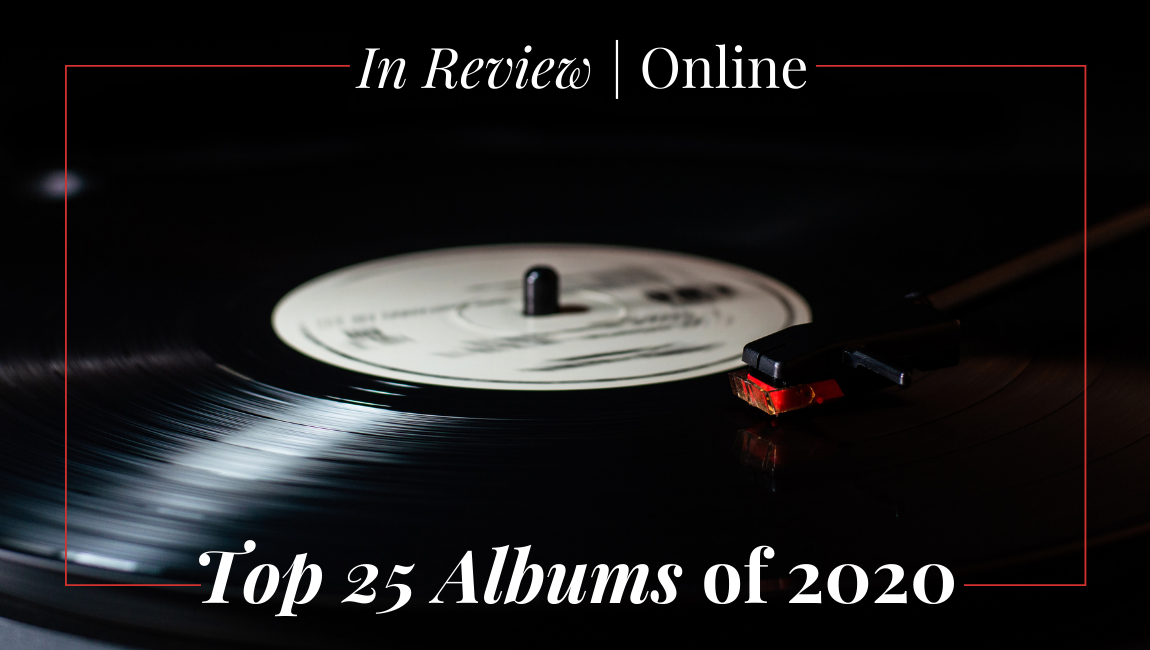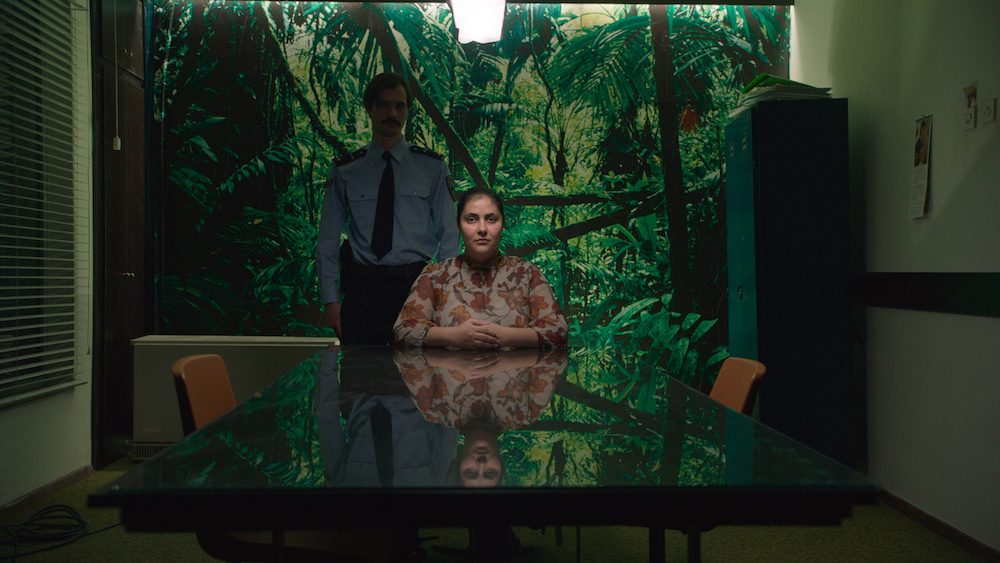From our Honorable Mentions post: While many of us lingered and struggled inside of our homes — and are still patiently following quarantine protocols until this global pandemic ends (with the major exceptions here being NBA YoungBoy and The Chainsmokers) — the best albums released in 2020 were able to transport us away from such existential bother. The releases on our list took to the far-away cosmos (Honey Harper and The Avalanches) and back to Baby Pluto (Lil Uzi Vert). They connected artists from the Caribbean (Puerto Rico’s Bad Bunny) to the Fennoscandian Peninsula (Sweden’s Bladee) and even to the Land of the Long White Cloud (New Zealand-based Tami Neilson). They found ways to break free from societal constructs and confines of masculinity (Dorian Electra and Yves Tumor), femininity (HAIM and Flo Mili), and patriarchy (Fionna Apple and Taylor Swift) — and, for good measure, embodied the acts of creative rebirth (Lil Wayne and Machine Gun Kelly) and spiritual awakening (Jay Electronica). There was a little something for everyone in a year where most had everything taken away, and while some sectors of the music industry will most likely not make it out of this alright, at least the quality of the following records didn’t suffer in the process. Paul Attard
Below is the first wave of our Top 25, featuring our 11th through 25th favorite albums. A handful of the below writing is excerpted from earlier pro-record reviews published here in 2020; the rest are newly commissioned end-of-the-year takes, crafted for your reading pleasure. Equally worth your time are the albums we recommend, so check them out.

Credit: Timothy Norris/Getty
25. Machine Gun Kelly | Tickets to My Downfall
The relationship between hip hop and punk rock is a long and complex one, evident since the early ‘80s and built upon a shared willingness to confront cultural norms and retool musical modes. Public Enemy is the logical touchstone — their considerable lineage boasting such disparate artists as Common, JPEGMafia, and even Rage Against the Machine — but the symbiosis extends to the late nineties and early aughts, when both traditions became increasingly indebted to (or flattened by) pop schematics. Fast forward a decade, and enter Machine Gun Kelly. It perhaps shouldn’t surprise that these genres should once again entangle in new forms, nor that it would come courtesy of a late-stage millennial who once singled out Eminem and Blink 182 as defining influences (also Avenged Sevenfold, which is the only historical instance of that happening), but what is revelatory is the degree to which he succeeds. While GothBoiClique (and other SoundClouders) invigorated an emo-rap hybridization, MGK never aspires to such, instead trading in that movement’s moody grime for pure performative confection. 2019’s Hotel Diablo signaled the artist’s evolution from rapper to histrionic pop entity, with single “I Think I’m OKAY” establishing the particular throwback emo flavor to come: “I hurt myself sometimes, is that too scary for you?” He followed up on that promise with this year’s Tickets to My Downfall, a manic bit of bubblegum punk nearly hip hop-less in sound, lyrically dramatic, and energetically carried through with appropriately angsty vocals. It’s a particularly earworm-y work of addictive pop, a record of free-flowing confidence indebted to both of the artist’s primary influences, and in a 2020 that saw the release of new albums from such powerhouses as Lady Gaga, Ariana Grande, Taylor Swift, Justin Bieber, and The Weeknd, too little attention has been paid to Machine Gun Kelly’s hook-heavy efforts. The nostalgic vision here wouldn’t be complete without drummer and producer Travis Barker, who has himself blurred the lines between the two genres, and who here brings his penchant for trappy snare production and pounding, speed-punk percussions, acting as a sonic bridge between MGK’s past and present, and helping to build would-be singles out of nearly every concise track. It seems safe to say that few are aching for a return to the inglorious days of Good Charlotte or Yellowcard, but if Machine Gun Kelly wants to post up in this kitschy corner of the pop world for the foreseeable future, we should be so lucky. Luke Gorham

Credit: Richard Johnathan Miles
24. Kate NV | Room for the Room
Kate NV, ever-chameleonic and relentlessly curious, released one of the most dazzling pop albums in recent memory this year with Room for the Moon. While it reflects the same gloss as her previous albums under the moniker — as well as the tight precision of her post-punk band Glintshake — every song here is a marvel thanks to an utter refusal to compromise. In talking about the album, Kate NV has referred to each track as an imaginary friend, something made evident by the characters she portrays in various songs’ music videos. Importantly, it means that she approaches songwriting with the same seriousness one should a close relationship, finding the best ways for it to grow and flourish and shine. As such, there’s an immense joy in simply hearing Room for the Moon and its expert craftsmanship: there’s nary a note that feels unessential. Take “Ça Commence Par,” where Kate NV transforms into a modern-day Lizzy Mercier Descloux: its elastic bassline anchors a swirl of flutes, shakers, hand drums, and synths, the whole thing at once feather-light and brimming with energy. Even the decision to sing in French enlivens the track, and as Kate NV is found elsewhere on the album singing in Russian, English, and Japanese, it’s clear that even language was a thoughtful consideration for every song. Room for the Moon didn’t spring from nowhere, of course — many of its songs channel the same lively spirit of Japanese and Soviet pop music from the 1980s. This is most evident on closer “Telefon,” which interpolates Roza Rymbayeva & Arai’s “Old Telephone.” But while the vocal melody is similar, a deeper comparison of the two reveals Kate NV’s propensity for ornate arrangements — dense, without ever feeling overstuffed — and demonstrates a masterful understanding of counterpoint. Simply stated, few artists making pop music today can match such brilliance. Joshua Minsoo Kim

Credit: Theo Anthony/Horse Lords
23. Horse Lords | The Common Task
Simply reading about Horse Lords could never do their music justice. Given their unusual tuning systems, 20th-century classical reference points, and their band members’ assorted avant-garde credentials, it would be easy to assume that access to the Baltimore-based group is closed off to all but a narrow class of intellectuals. But such an assumption can be disproven from even the earliest moments on The Common Task. Opener “Fanfare For Effective Freedom” is as powerful an introduction to the band as any, the mesmerizing power and precision of their polyrhythms immediately on display. For all of its cerebral ambitions, this is really dance music at its core, and the grooves quickly prove irresistible, prompting involuntary head nodding even as the music’s rhythmic center continuously shifts. Though a rock band in form (the quartet is made up of a guitarist, a bassist, a drummer, and a saxophonist), most of the music that Horse Lords are drawing from falls far outside the confines of western rock music. Close listening reveals influences ranging from gamelan to Terry Riley to contemporary computer music to Mauritanian guitar techniques, among others, all of which prove more essential than the American math rock that they might vaguely resemble on the surface. Nevertheless, an understanding of said influences is by no means a prerequisite for enjoying Horse Lords. Their work speaks to the body just as much as it does the mind; avant-garde aesthetes and tripped out ravers alike can easily find something to love here. Brendan Nagle

Credit: Taylor Hill/Getty
22. Bad Bunny | YHLQMDLG
Bad Bunny’s YHLQMDLG provides both an entry point to modern urbano and a crash course in the traditions that built it. The rapper hardly cares to hold a newcomer’s hands throughout the whole album-length tour — he titled the album Yo Hago Lo Que Me Da La Gana, or “I do whatever I want,” after all — but more so because he smartly understands that the best way to find familiarity is by simply getting lost in the mix. It’s no more evident than in his explicit gesture at homage, “Safaera,” which blends multiple iconic beats throughout the track to recreate the feel of the mixtapes that helped establish reggaeton’s early influence. Zooming out a bit, and taking in a view of the project as a whole, Bunny’s respect to the tradition also shows in the spread of guests present who account for the genre’s last two decades, including the likes of Daddy Yankee (“La Santa”), Nengo Flow (“Que Flow”), and Kendo Kaponi linked up with Arcangel (“P FKN R”), among others. Here, the rapper is as much a curator as he is the main attraction, supplying boastful raps, bouncy ad libs, and emotive croons to tracks made for a world stage he’s willing to share. Anthemic and rallying as it all can be, YHLQMDLG best resonates when it gets personal about relationships, romance, and, in the case of album closer “<3,” the support and love from everyone around him. YHLQMDLG is a unified effort through and through, and so when Bad Bunny wins, so do we all. Ryo Miyauchi
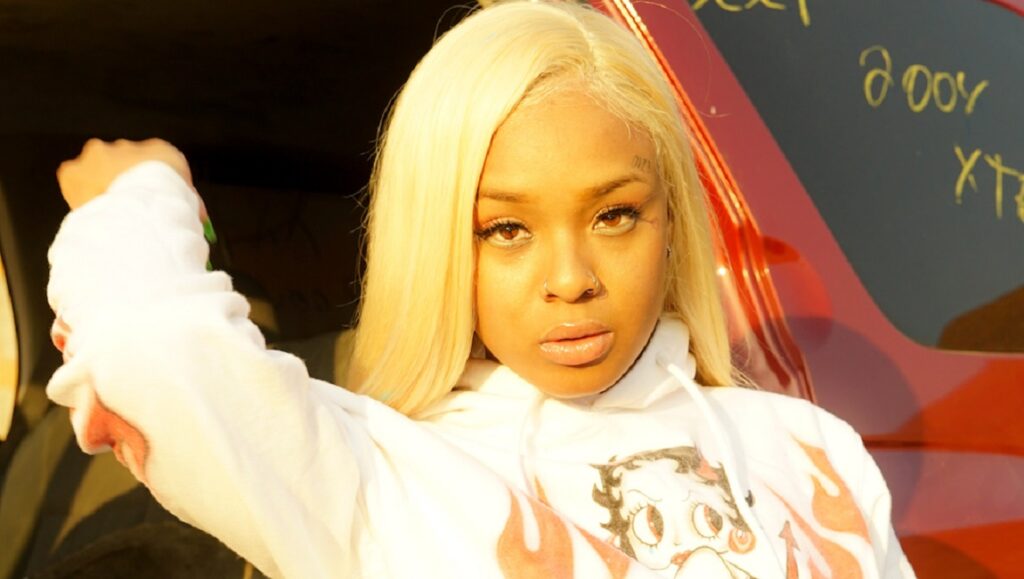
Credit: Crystina Bond
21. Hook | Crashed My Car
Hook begins Crashed My Car, her first of two mixtapes from 2020, in hysterics, detailing how she, yes, crashed her car. While the Riverside rapper doesn’t bother explaining anywhere in the record about how she got there, it’s apparent on the title track (featuring Zack Fox) that all the fuss is part of a big inside joke among her circle of friends, and Crashed My Car thrives on this odd, unpredictable sense of humor unique to Hook. She might boast in one bar, replete with a dead-serious growl, then fail to hide her giggles on the next; and her penchant for dragging out a flow can give the impression of her mentally gathering material to crack wise on the spot. “Boohoo” best puts the process in action, her self-amusing rhymes delivered as if she’s ready to bust out in laughter, though it’s also hard to fault when she comes up with such a slapdash line as “she said she want to meet at noon / but I don’t fuck with 12, so I told her 2.” As if her humor didn’t already occupy its own plane of logic, Crashed My Car further cements its singular world thanks to the mixtape’s austere beats that warp the post-ratchet, DJ Mustard-refined formula of boom, clap, and a three-note piano riff into something more deranged: a creaky, alien moan disrupts the booty-bass rattle of “Wannabe,” and the eerie hiss of “Awesome” better suits the opening reel of a Twilight Zone episode. Yet her guests, such as Almighty Suspect and Lerado, sound right at home because they’re likewise eager to obnoxiously mess around. Hook utilizes the mixtape’s slightly wonky vibe, established throughout by both its gonzo humor or production decisions, to create a rap record that feels like it could have only ever come from Hook’s mind. Like a good joke, Crashed My Car is better heard and experienced firsthand than thoroughly explained. Ryo Miyauchi

Credit: Tami Neilson
20. Tami Neilson | CHICKABOOM!
The leanest and meanest country record of 2020, Tami Neilson’s CHICKABOOM! is the dynamic singer-songwriter’s fourth straight career-best album. Over a breakneck set of country and rockabilly tunes, Neilson explores what it means to be a working mother in a world that still struggles to make spaces for women to make their own choices. Neilson, to her credit, makes no apologies for her devotion to family or for her genre-blurring, retro aesthetic. She recalls her history as a performer in her family band on “Ten Tonne Truck,” nodding to the lie that hard work and talent alone are the path to commercial success, and she counts down the days until her tour ends and she’s reunited with her family on the raucous “Hey, Bus Driver.” Paying homage to The Dixie Cups’ “Iko Iko,” “Queenie, Queenie” outlines the conflicting expectations faced by working moms and, for good measure, gets in a perfectly-executed dig at country radio for its entrenched sexism. Later, Neilson shouts out her musical hero, “Sister Mavis” Staples on a gospel rave-up that also pays tribute to icons like Sister Rosetta Tharpe and Mahalia Jackson. The album’s centerpiece, “You Were Mine,” places Neilson firmly in the company of just such legendary, powerhouse performers. Inspired by the death of her father, Neilson considers the gravity of a relationship that has come to a definitive end. She channels her grief into a blues performance for the ages: There are few, if any, vocalists on the planet who could match what she does here. Beyond that particular standout, CHICKABOOM! as a whole finds Tami Neilson consistently plumbing new depths in her songwriting and playing up the tension between her decidedly old-school style and her of-the-moment feminist bona fides. Jonathan Keefe

Credit: Jeff Kravitz/FilmMagic
19. Hayley Williams | Petals for Armor
If Hayley Williams intended to hide her anxieties behind the primary colors of Paramore’s After Laughter, it yielded the opposite (but nevertheless incredible pop) results. The pop-punk band’s Technicolor hues heightened the senses as much as they highlighted the irony between volatile emotion and upbeat rhythms, with Williams’ words and cadences landing with visceral impact. Another peculiar trade-off happens with the music on Petals for Armor, Williams’ first solo record since debuting with Paramore in 2005. She’s more forthcoming, allowing darker, intimate issues to emerge: “Dead Horse” opens with a candid voice message from the artist herself, who apologizes for the late response due to her depression. Despite this inclination for directness, the music somehow becomes more elusive — even when she falls back to the familiar, slick funk of her band’s latest album. Williams is more forthcoming as a lyricist here, demonstrating a better articulation of her internal conflicts, and yet, her songs are prone to wander, the footing more unsure. […] Petals for Armor sounds like a ghostly echo of After Laughter, lacking as it does some of that record’s color and carrying forth a more introverted energy, but it’s a welcoming tone of hollowness, one that underscores Williams’ current thematic preoccupations. It’s an album that doesn’t so much aim to capture in music any immediate, all-consuming burst of anxiety, but rather one that seeks to express, in word and mood, how it feels when that unease lingers, seeping into everyday life. Ryo Miyauchi [Excerpted from full review.]

Credit: Youtube
18. Honey Harper | Starmaker
Honey Harper isn’t yet a big name. But if you’ve had any exposure to the musician, you’ll know of his reputation as the modern torch-carrier of Gram Parsons’ Cosmic American Music tradition. Born William Fussell, the singer was the son of an Elvis impersonator, and it’s easy to see how early exposure to such playful camp would lead the eccentric balladeer to the glam pageantry of his Honey Harper persona — he doesn’t reach for the costumed flamboyance of a Bowie or Lady Gaga, but his bedazzled cowboy hats and cheap-chic dude-ranch garb make him more of a genre-specific Bradford Cox. His musical evolution also tracks: both the shoegaze, neo-psychedelic tenor of his first band Mood Rings and the dreamy, synth-heavy pop of his one-off EP under the moniker Promise Keeper are integral to the compositions on Starmaker, the debut LP under his current name and a work of reimagined country music. […] The core elements [of the genre] are here: swirling pedal steel-driven structures; frequent acoustic guitar softening the edges; a heavy but selectively employed twang (Harper hails from the deep south of Georgia); pronounced bass-tenor voice breaks; puckish percussives that kick up in his choruses. His country instincts are most reminiscent of Keith Whitley’s delicate, earnest emotionalism and patient songwriting rhythms, but he underscores all of this with the ebb and flow of ethereal harmonies, swelling orchestral strings, and electronic intrusions, imbuing his tracks with a sense of something otherworldly where the genre typically invokes a rooted sturdiness. […] [He likewise] retains the storytelling mode that finds most purchase in country music, but tends to elongate emotion, opting for impression over expression. This affective touch is Stargazer’s most reliable strength and frequently results in surprising melancholic crescendo, no more so than on album standout “Something Relative,” Harper’s raw falsetto bracing his broken plea: “Please stay / I know all your life is gone. / Like some galaxy lost in a solar wind / just searching for something that’s relative.” Luke Gorham [Excerpted from full review.]

Credit: Jenia Filatova
17. Jessy Lanza | All the Time
While Hamilton, Ontario may not seem like the most fertile ground for cultivating an interest in dance music, the city is actually home to a rather robust club scene, one that Jessy Lanza got an early taste of thanks to her father’s PA rental company. Lanza makes pop music, in the broadest sense, but she has always drawn on techno, footwork, and other electronic club music in a manner distinct from most of her peers. All The Time, her third straight collaboration with Junior Boys’ Jeremy Greenspan (another Hamilton native), is denser in its sonic decoupage than either of her previous records: in some moments, her new record even bears a resemblance to more rhythmic forms of sound collage. Many of these songs feel almost mosaic in their construction, shards of sound — synthesized squeals, GameBoy-esque blips, abstracted vocal samples — assembled as wonky beats and stuffed into pop song structures. […] There is a subtle ambiguity to Lanza’s writing, sonically and lyrically, that stands in contrast to the sugary, hedonistic tendencies of many oddball pop acts. Where the likes of PC Music or 100 Gecs often balance their relentless hooks with noisy production, Lanza does the opposite, crafting odd earworms within a more subdued style. And, lest my descriptions mislead you, I should make clear that All The Time is, above all, a delightful dance record. It’s breezy and fun, and easy to get lost in, but the dark edge that Lanza brings rewards deeper listening as well. Brendan Nagle [Excerpted from full review.]

Credit: Nicole Mago/Rolling Stone
16. HAIM | Women in Music Pt. III
“Goodbye for now” were the words that the Haim sisters posted to their individual Instagram accounts in early 2019, though the subtext was more promise than farewell. What exactly was in the offing? A new album? A huge tour announcement? Eventually, “Summer Girl” was released, a single that was followed by two others (“Now I’m In It” and “Hallelujah”), and then…radio silence. There remained the suggestion of something imminent, but the official message was quite the opposite. It wasn’t until early 2020 that the group finally announced their new record, Women in Music Pt. III, and […] HAIM’s latest is at once their most diverse, reflecting a wide variety of styles (often on the same track) and their most intimate, speaking to various personal traumas in their vulnerable lyrics. […] After deleting their individual social media pages, the Haim sisters joined forces on the band’s page, and it seems this was prophetic, in a way, of the sonic cohesion that is borne out across their new album. [Rostam] Batmanglij’s presence is felt on nearly every track, both his writing and producing a stabilizing force and undeniable boon for the album — Women in Music has the distinct feel of HAIM at their most fully realized, evincing a track-to-track consistency never before achieved in their discography. In fact, the three singles from 2019 are present only as bonus tracks, and it’s a testament to the album’s coherent vision and texture that they manage to feel as much a part of it as any other cut. In this way, these final ten minutes prove fascinating: they are both past and present, transformed from their initial function as anticipation-builders into a victory lap of sorts. It’s a decision that reinforces the bold promise of Women in Music Pt. III: that though it may be a while before HAIM delivers another record, it simply isn’t their style to look back. Andrew Bosma [Excerpted from full review.]
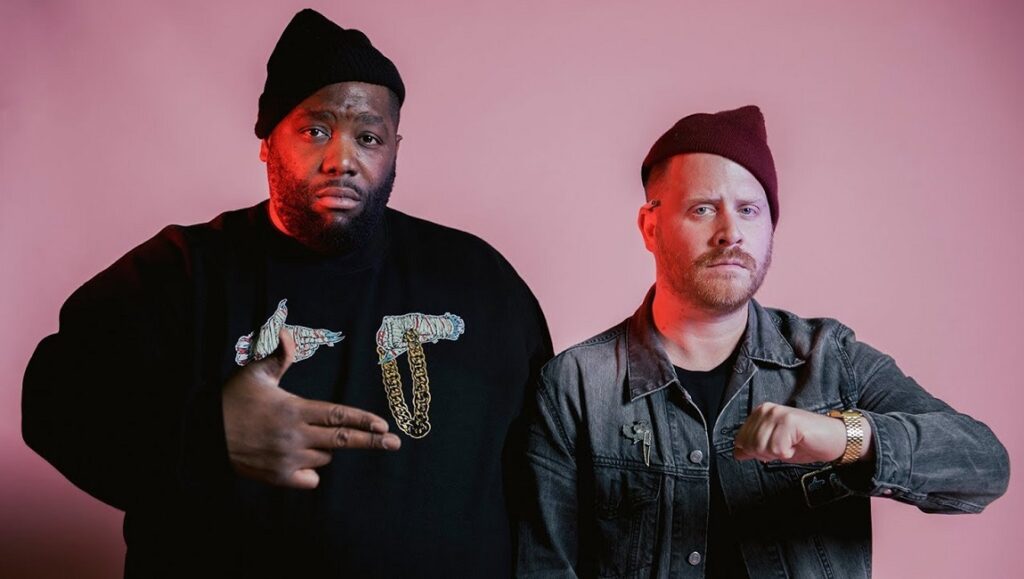
Credit: Youtube
15. Run the Jewels | RTJ4
A hip-hop album for old heads and connoisseurs, made by two guys who grew up in the golden age of rap and love it too much to surrender it to obsolescence or nostalgia. The fourth Run the Jewels album is dense with wisecracks, hysterical boasts, and outrageous threats of violence, echoing across clattering productions that wrestle sirens and samples into an invigorating cacophony. And yet, for all of that, it’s also the sleekest, most direct, most undiluted Run the Jewels album yet; if their third record showed the slightest signs of strain, this one is a blast of pure joy and adrenaline. For all its old-school callbacks, it’s also bracingly current: Dropped like emergency rations in the midst of the George Floyd protests, RTJ4 chronicles a long and weary history of oppression and dehumanization, to the point that it briefly felt like the only music worthy of addressing its fraught era. El-P’s conspiracy theories are more pointed than ever, while Killer Mike offers context through arresting autobiography. And while their buddy-comedy act has always gestured toward nihilism, that’s getting harder and harder to take seriously: There is simply too much love between these guys for anyone to believe they’ve given up or don’t give a shit. Perhaps that’s why RTJ4 feels like the most meaningful Run the Jewels album yet: For all its boasting and righteous anger, deep down, it’s a sweet album about brotherhood. Josh Hurst

Credit: Vevo
14. Selena Gomez | Rare
Selena Gomez’s solo albums have always had an intensity that’s been largely misunderstood (or simply written off as an attempt to capitalize on her publicly disastrous relationship with Justin Bieber). Her very first, Stars Dance in 2013, came too close on the heels of her almost perfunctory post-Disney rebellious rebirth à la Miley Cyrus in the film Spring Breakers for the peculiarity of its content to make much of an impact. And it’s not like she’s gone on to produce many smash hits in the remainder of her solo career, either. It makes sense, then, that the thematic throughline of her records has gone more or less unnoticed, though listening to tracks like “Write Your Name” from that first album or any number of tracks on the 2015 follow-up Revival reveals a brutal honesty that reflects Gomez’s publicized emotional turmoil. The increasing appearance of Gomez’s name on the writing credits across her three albums backs this up — for the first time, her name appears as a writer on every track on the deluxe edition of Rare, which is in turn probably her strongest collection to date. Lyrically, the album largely covers the familiar territory of declarations of self-worth and the lingering pain of past relationships, yet their articulation here is more cutting and personal than ever before. In the chorus of bonus track “Souvenir,” Gomez’s delivery invests the song with a sense of irreparability, and pushes the cliché “take my breath away” into an extreme description of giving oneself completely over to a lover, while closer “Feel Me” is positively venomous, Gomez punctuating the album by wishing her ex to constantly remember her in place of any of his future lovers. The album overall sports the most consistent production of any Gomez record, its pairing of her tame vocals with a moody, dance-pop sonic palette making the album sound like the first truly distinguished project for the artist. Three years in the making, Rare is the first Gomez album that can truly be called honest, and it’s obvious she knows her strengths. Alec Lane

Credit: Weston Allen/PR
13. Dorian Electra | My Agenda
Dorian Electra has seemingly done the impossible — well, at least what seems impossible for most Top 40 artists these days to accomplish — with their sophomore release My Agenda. Along with an extensive list of creative collaborators, they have crafted a record formulated around a singularly haptic visual, sonic, and thematic aesthetic that synergizes into something greater than its bit parts, mashing and distorting disparate musical genres until they mutate into brief, yet infectious earworms. Characterized as a “crisis in masculinity” by the album’s gender-fluid and transgender ringleader, My Agenda flippantly cycles through a disorienting number of intensified tonalities to match the erratic nature of the many lyrical characters Electra embodies (usually lonely celibate males, secretly repressed homophobes, or some combination of the two) in a manner similar to the 100 gecs school of songwriting — which makes sense, considering Dylan Brady produced four of project’s 11 terse tracks. […] They are nearly all ridiculously fun cuts that still express a certain political potency, exposing the hypocritical insecurities of internet trolls and deconstructing traditionalist notions of masculinity in the process. […] The re-claiming of hateful verbiage reaches peak velocity on the appropriately titled “Ram it Down,” which opens with a Viking metal power riff that eventually gives way into a thumping EDM rave, as the laconic chants of the chorus (“Harder, farther, deepеr/I can’t breathe”) imagines a world in which such a homosexual agenda has finally been accomplished. And album finale/cheese-filled BDSM anthem “Give Great Thanks” finds our incel hero finally succumbing to his urges, elated to finally have someone “fuck my face for a hundred days.” It’s an appropriate, punctuating closer, performed with a sincerity akin to the stylings of early Celine Dion — except, you know, gayer. Paul Attard [Excerpted from full review.]

Credit: Ben Quinton/The Guardian
12. Jessie Ware | What’s Your Pleasure?
Cruelly and ironically, 2020 marked a grand return of disco: legends, Kylie and Róisín, and newcomers, Dua and Jessie, all donned their diva regalia in a best effort to get us on the dance floor. Only Jessie Ware’s What’s Your Pleasure? really makes much sense in a year marred with introspection and solitude — her sensual, internalized dance music turned out to be the perfect accompaniment for dancing on one’s own. This, the artist’s fourth album, is a pristine homage, perfectly weaving through the sounds of the late ‘70s as they bled into the ‘80s. As with all great dance music, atmosphere is everything, and in What’s Your Pleasure?, Jessie carefully crafts a consistent tenor of intimacy, sensuality, and sophistication: the lush strings, vibrant synth, and boisterous brass all assist Jessie’s evocative, romantic performance. In a lot of ways, this is a conservative record. The lyrics are full of yearning, but in a chaste, monogamous way, perfectly exemplified in “Soul Control,” which uses clever homonyms to express ultimate devotion, all set against a dangerously upbeat funk. But perhaps this only feels conservative because it’s so in control, passing from one jaw-droppingly beautiful song to the next, sequenced with a masterpiece opening both sides of the record, and in the final position. Opening with a soft, orchestral lament before slipping in the slickest groove, “Spotlight” starts perfectly and then continues to one-up itself throughout. As the album centerpiece, “In Your Eyes” is a rare downbeat moment, reminiscent of Sade and sustained by Jessie’s dreamy vocals, bubbling bass, and high, trembling strings. “Remember Where You Are” is a giant, joyous finale, boasting a last-second surprise that offers the record’s most touching moments: a choir bequeathing warm and welcome benedictions. What’s Your Pleasure? can be danced all the way through and, perhaps most importantly, bears forth the promise of many more dancy nights to come, hopefully including the return of live shows with Jessie Ware and her band. Tanner Stechnij
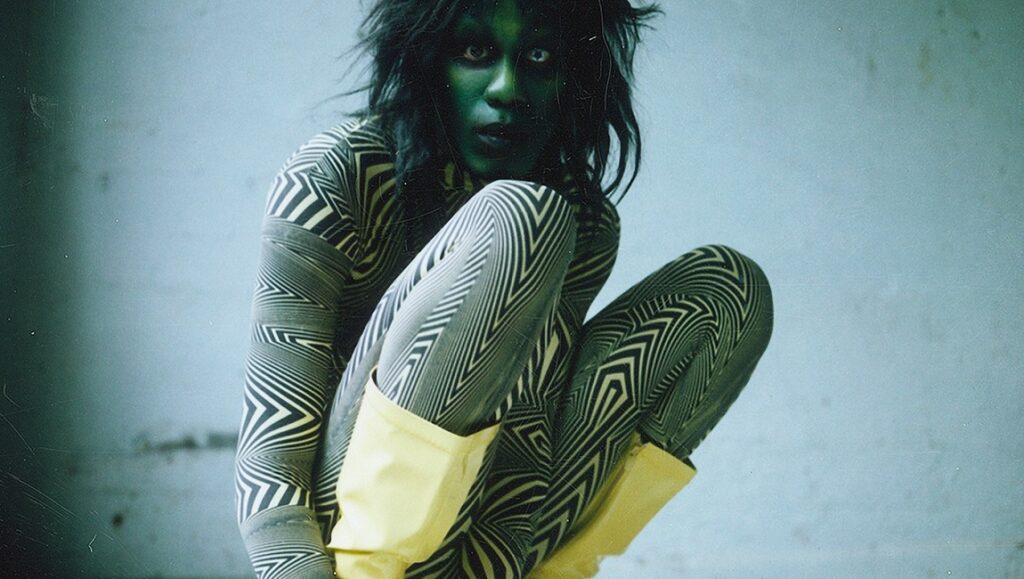
Credit: Jordan Hemingway
11. Yves Tumor | Heaven to a Tortured Mind
There is a satisfaction in seeing Yves Tumor deliver an album like Heaven to a Tortured Mind, at once a clever progression of their sonic aesthetic that also manages to blow past the dusty narratives media types love to burden them with. Though, of course, new narratives emerge — this is Yves Tumor’s glam rock album, a fulfillment of the promise of their last name, etc. Opening on the dazzling, appropriately titled “Gospel For A New Century,” one can see how this perception crystallized, the track prioritizing Yves’ slinky vocals and analog instrumentation to an extent heretofore unseen in their catalog. And indeed, the album’s other single, “Kerosene!”, leans into a similarly minded rock ‘n roll melody, yet, like all of their work, Heaven to a Tortured Mind approaches genre affectations as material to be repurposed and reworked into larger compositions. Like their last two albums, Heaven to a Tortured Mind finds Yves guiding us through a terrain of contrasting noise and melody. But unlike their previous work, the songs on this album are not positioned so aggressively against each other, the dramatic swings between chaotic industrial feedback and soulful grooves here quelled and balanced out. Undoubtedly, this is the most streamlined project yet released under the Yves Tumor name, not to mention their catchiest and most pop-skewing. Such descriptors usually imply an artist’s creativity diminished, but Heaven to a Tortured Mind is inventive in its approach, building out Yves’ inventory of sonic elements while still deepening their mythic persona. Yes, this album’s most immediately characterized as a reinvention of sorts, but it is, in fact, more specifically about the act of reinvention and its empowering capacity. M.G. Mailloux

